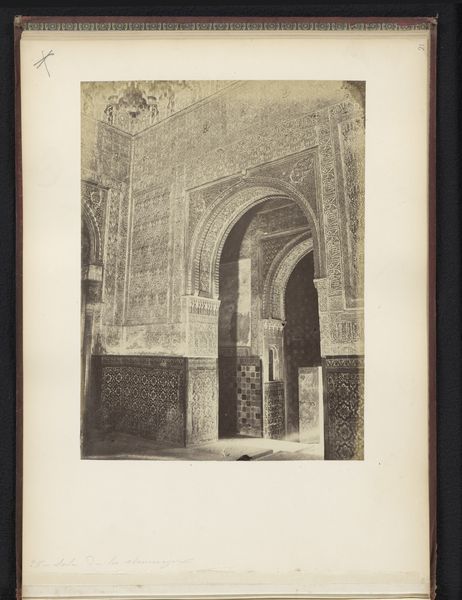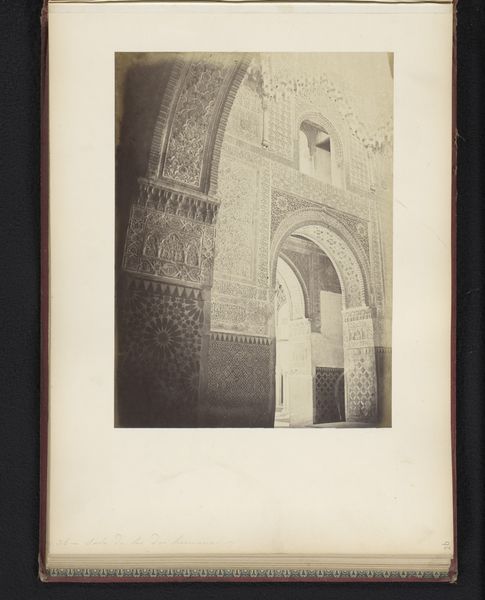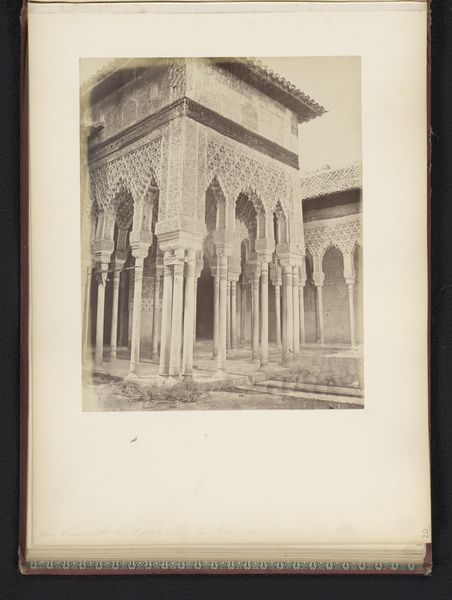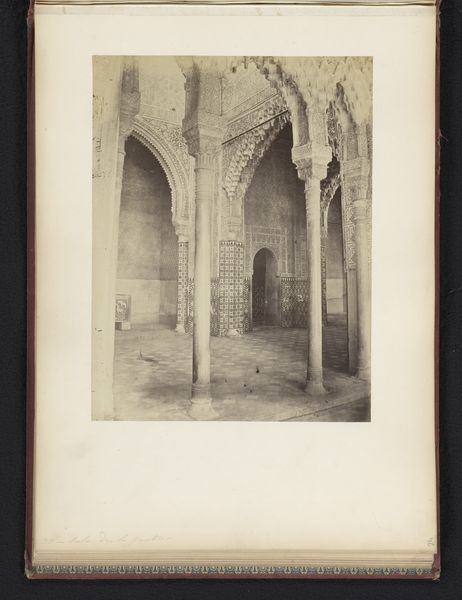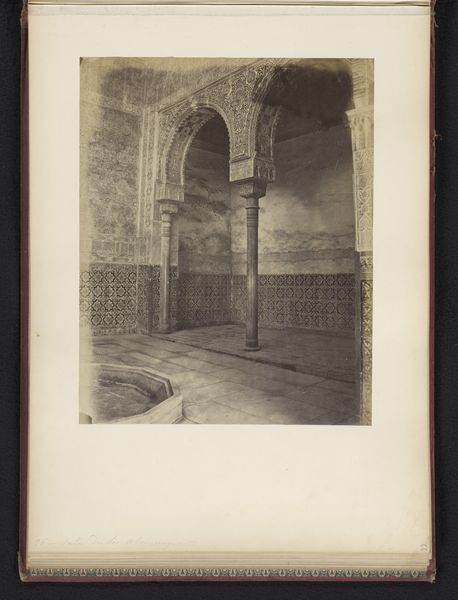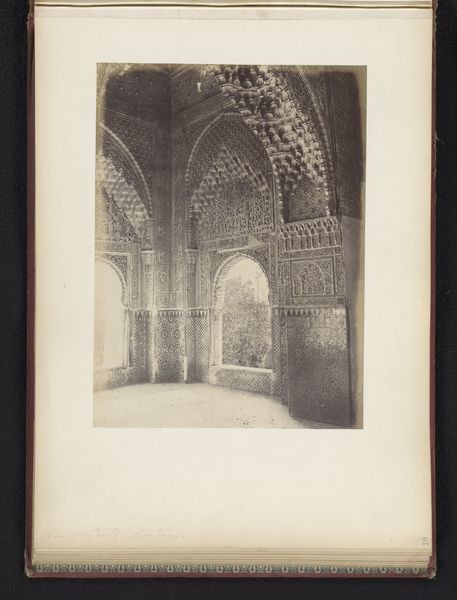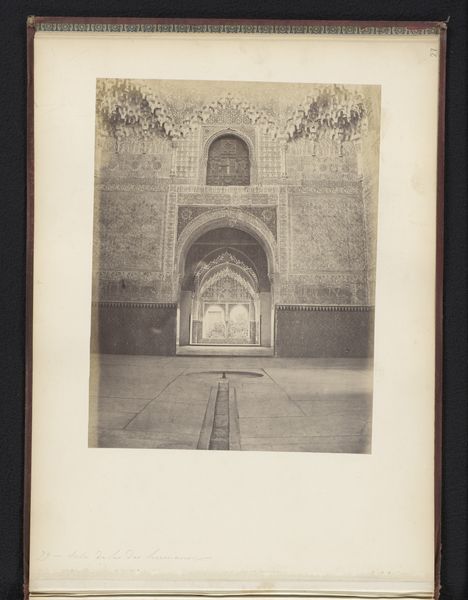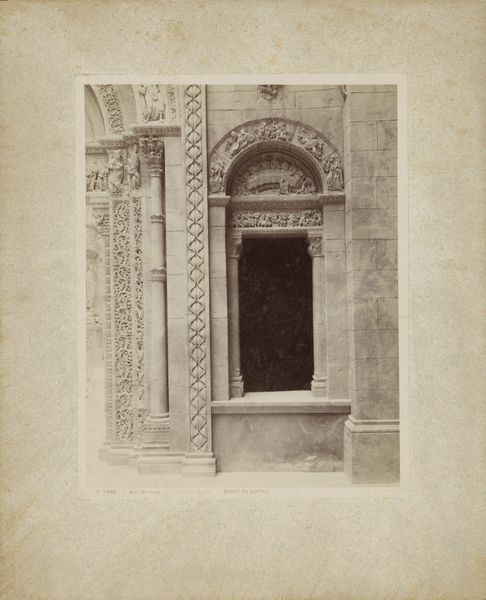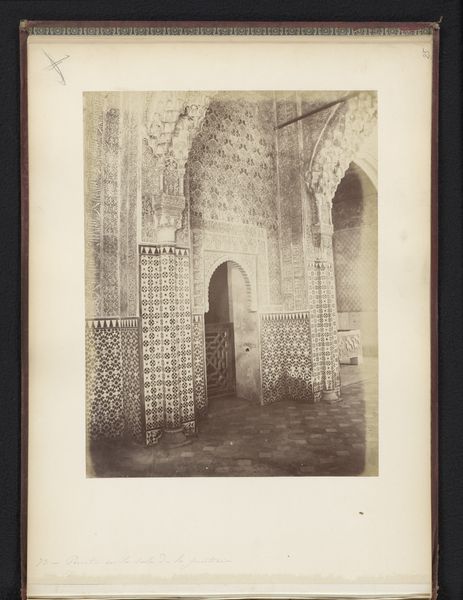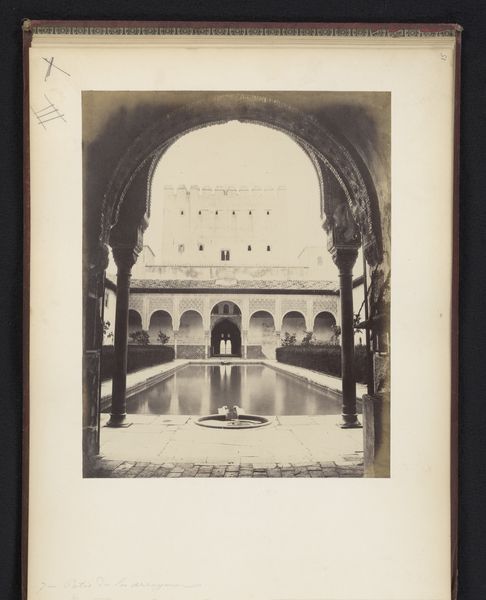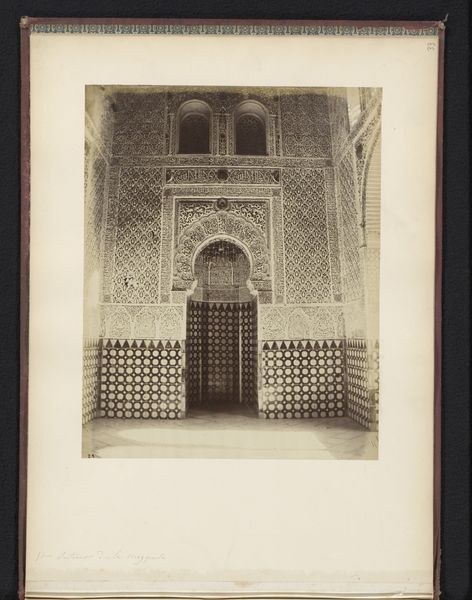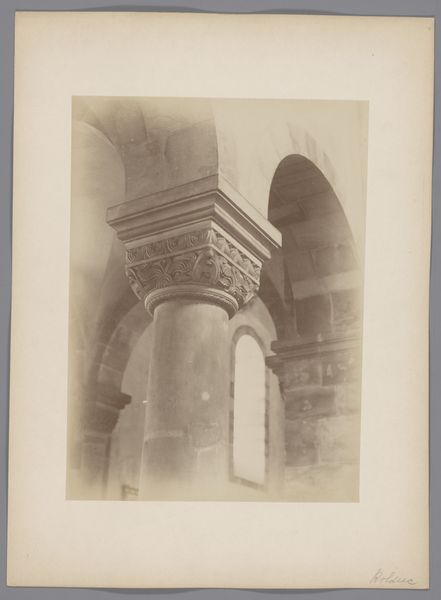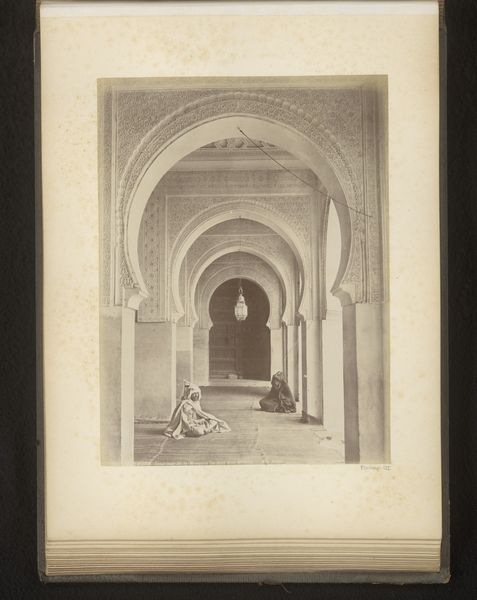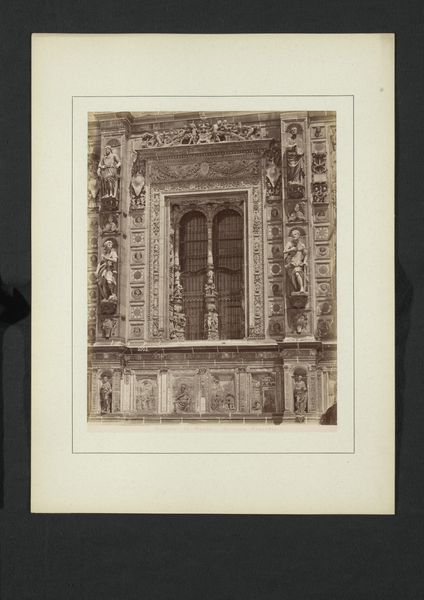
print, photography, architecture
# print
#
photography
#
cityscape
#
islamic-art
#
architecture
Dimensions: height 273 mm, width 205 mm
Copyright: Rijks Museum: Open Domain
This photograph of the Poort van de Sidi Boumediene moskee was taken by Étienne Neurdein sometime in the late 19th century, using a process that was still relatively new: chemical photography. Look closely, and you can see the way that the light captures the textures of the building: the intricate geometric patterns carved into the stone, and the rough surface of the surrounding walls. These details are what make the photograph so compelling. But think about what it took to produce an image like this at the time. The glass plate negatives, the darkroom work, the printing. The chemical processes are what really define early photography. It was labor intensive, not easily repeatable. There's a real sense of material craft embedded in these early photographic prints, which is easy to forget when we think of photography today. In the end, by emphasizing the human involvement in its production, we appreciate the photo’s artistry, and challenge any high/low art distinctions.
Comments
No comments
Be the first to comment and join the conversation on the ultimate creative platform.
